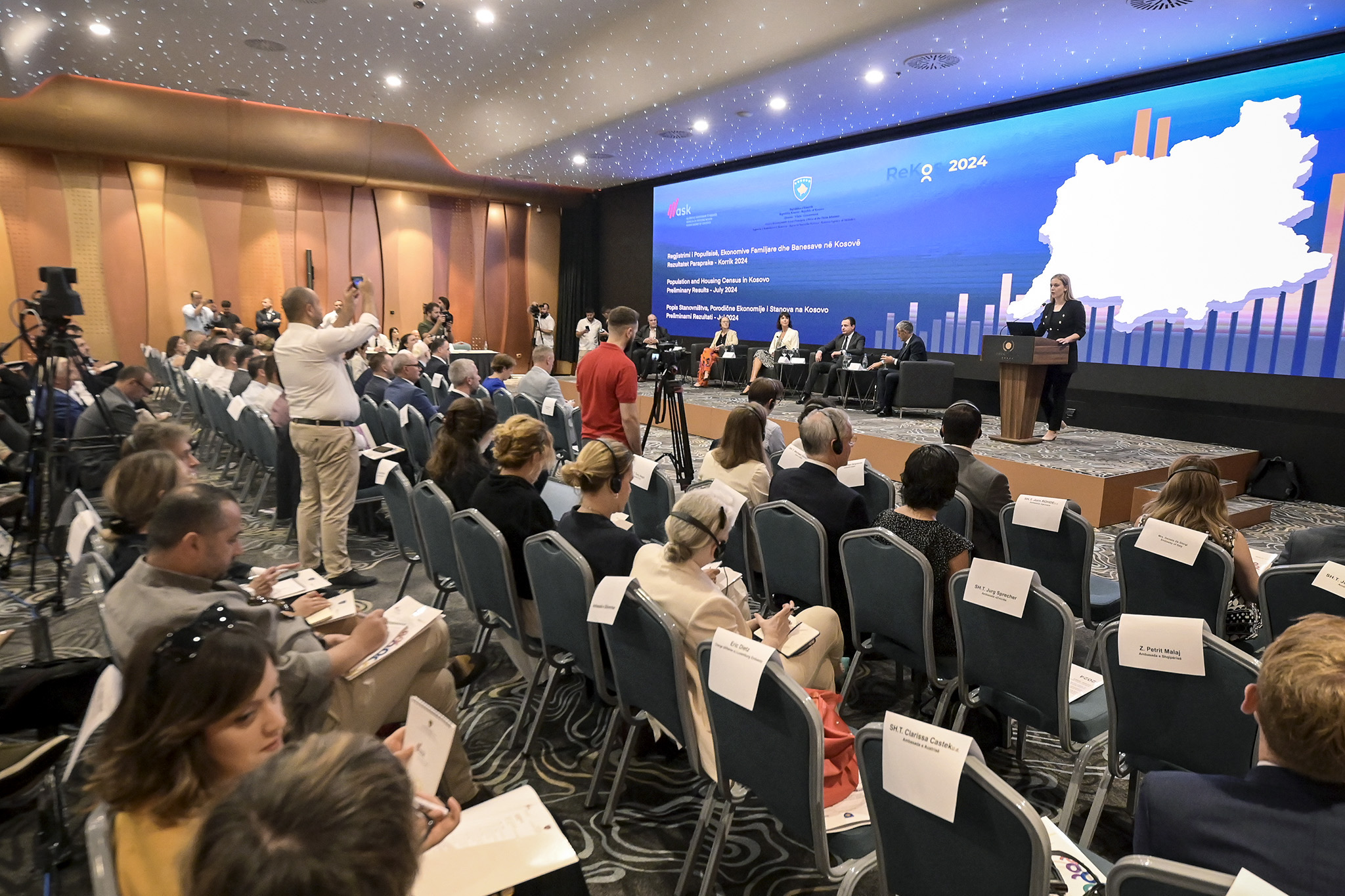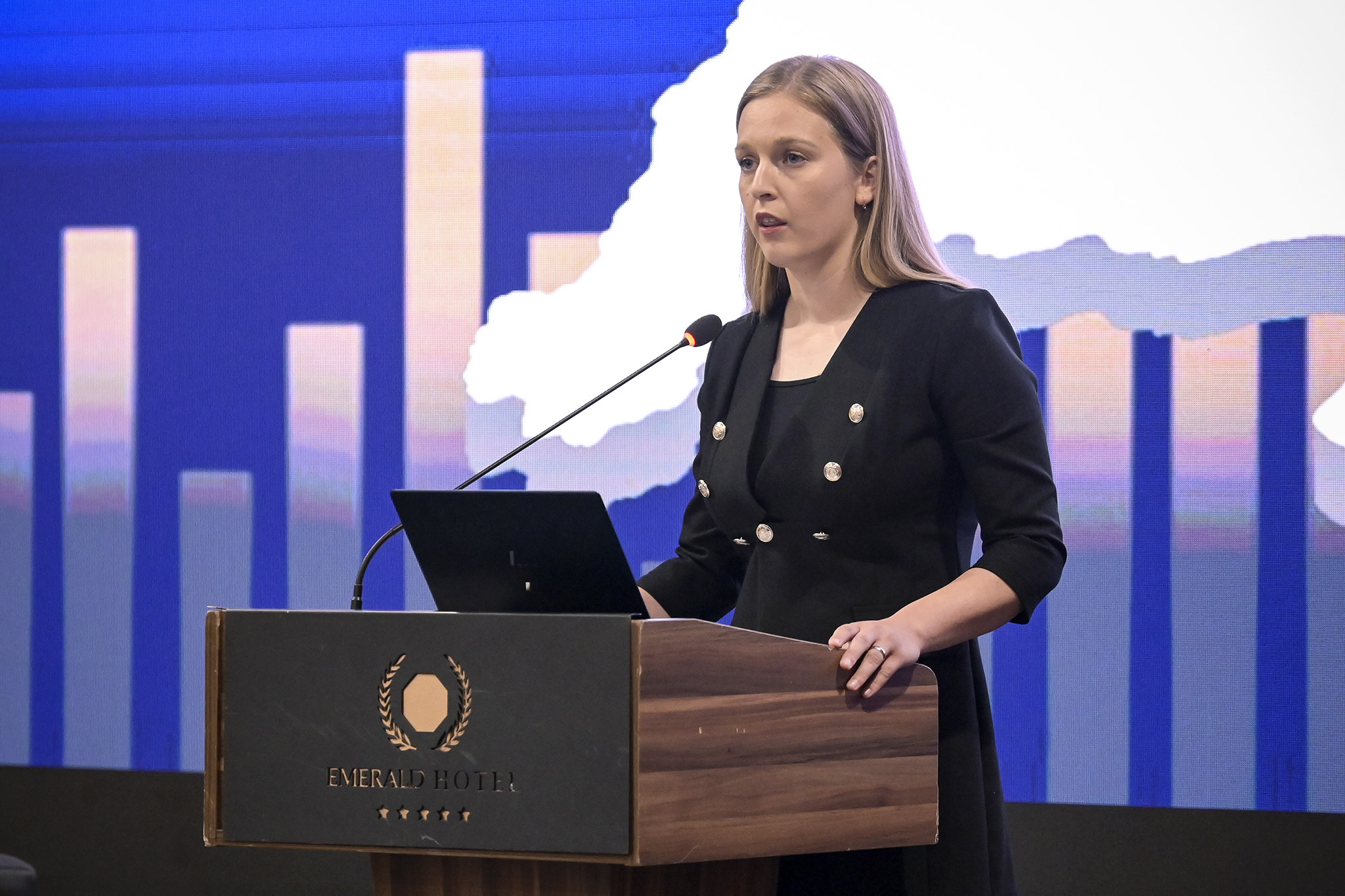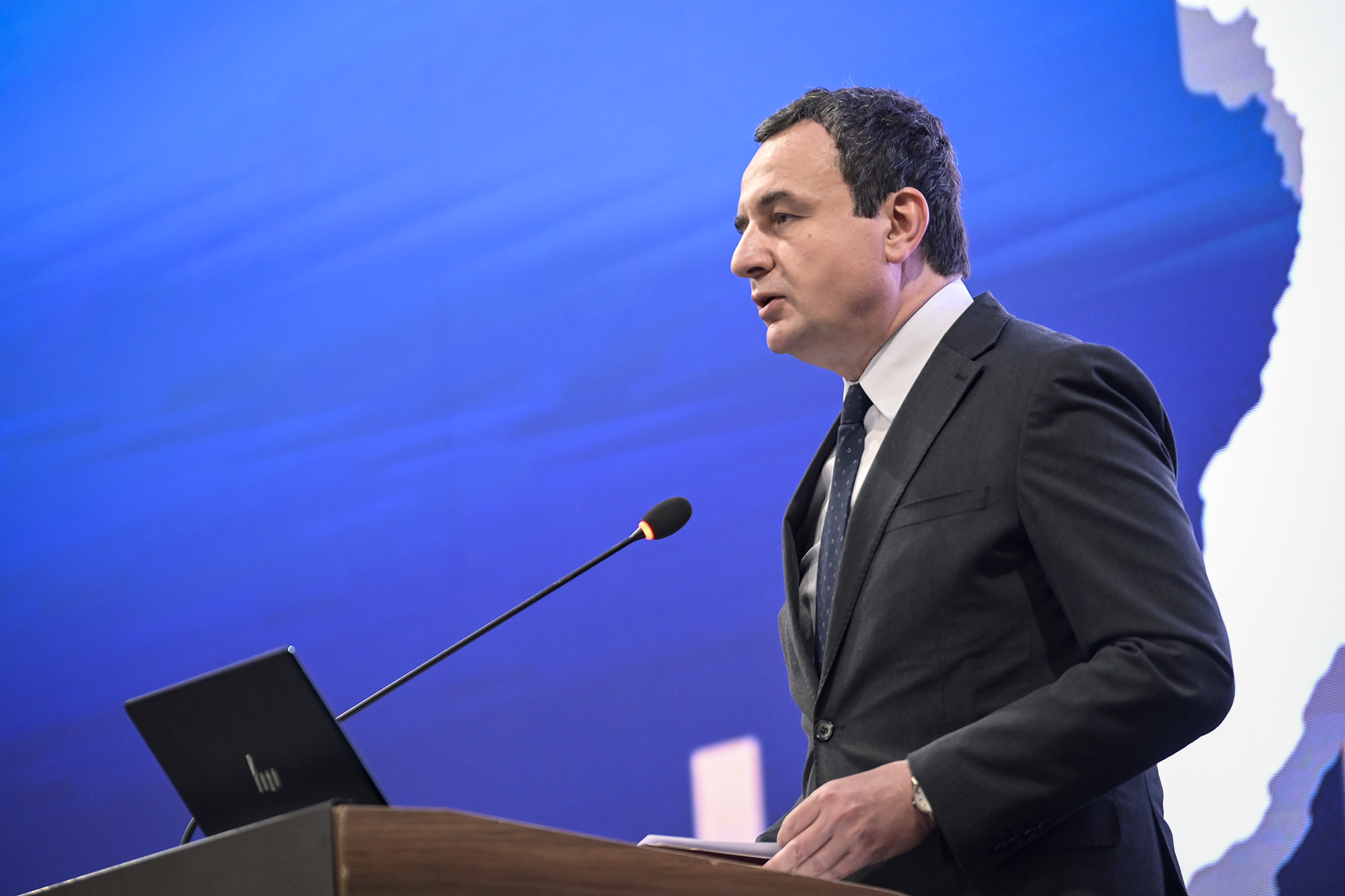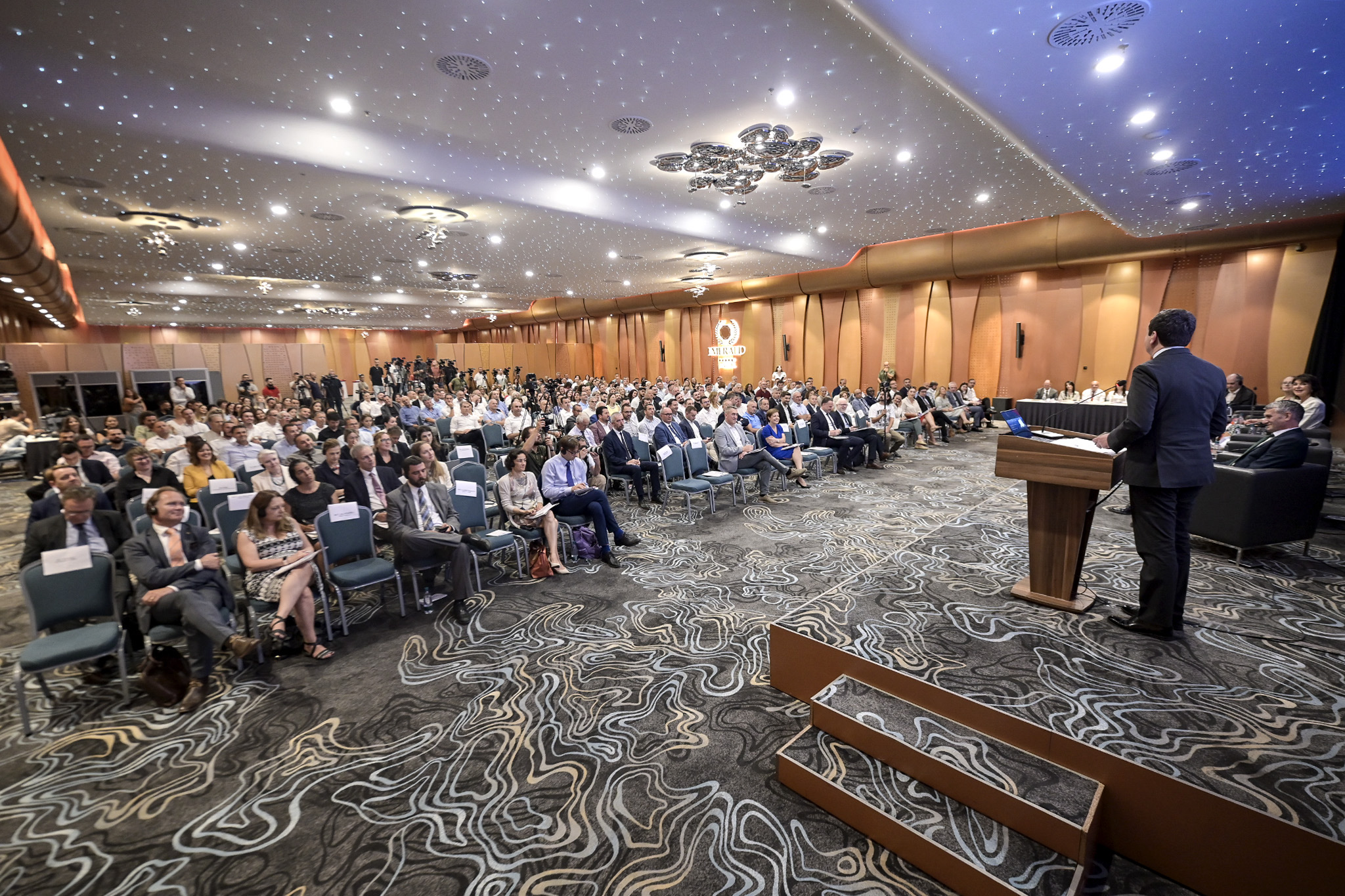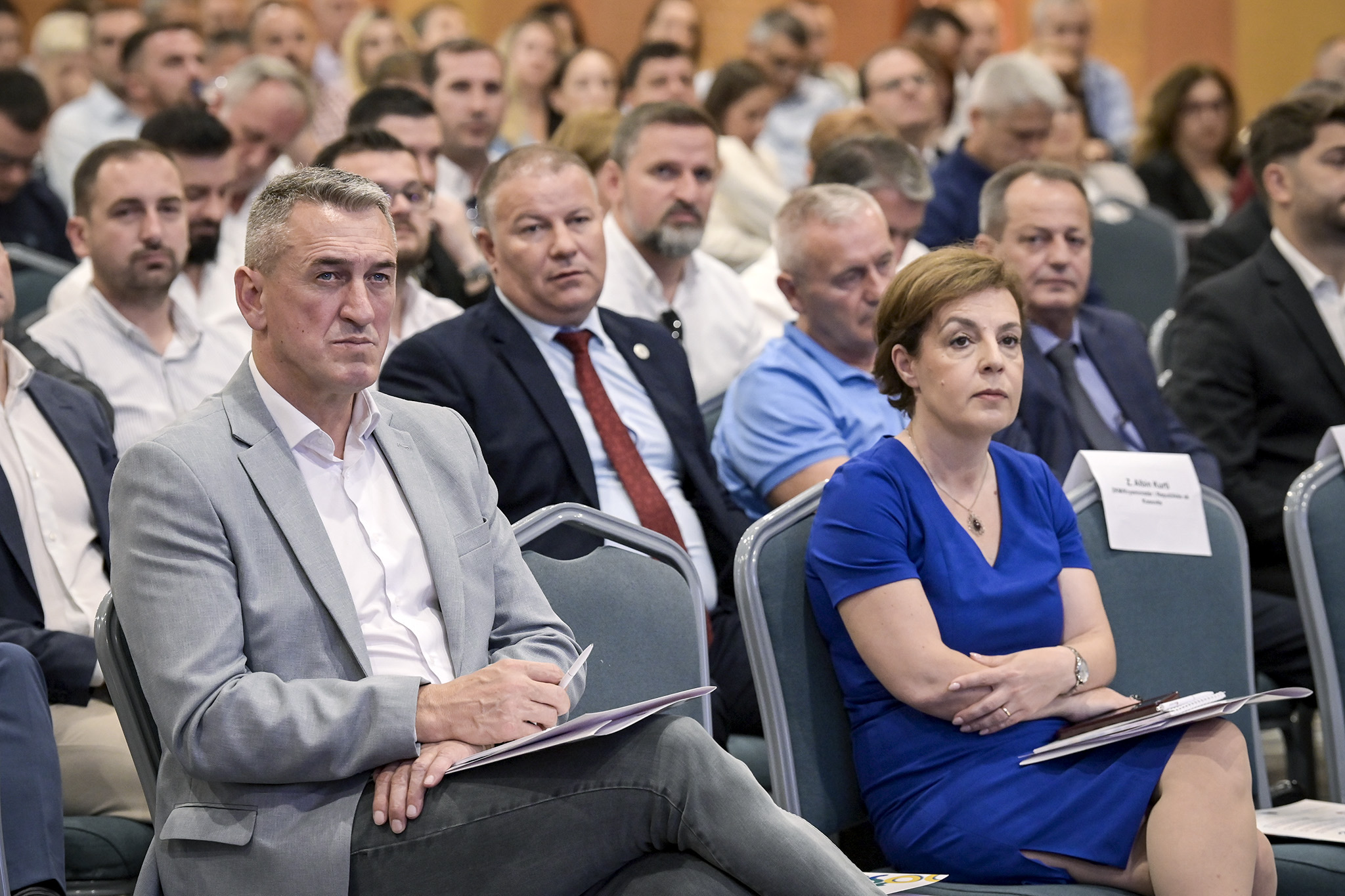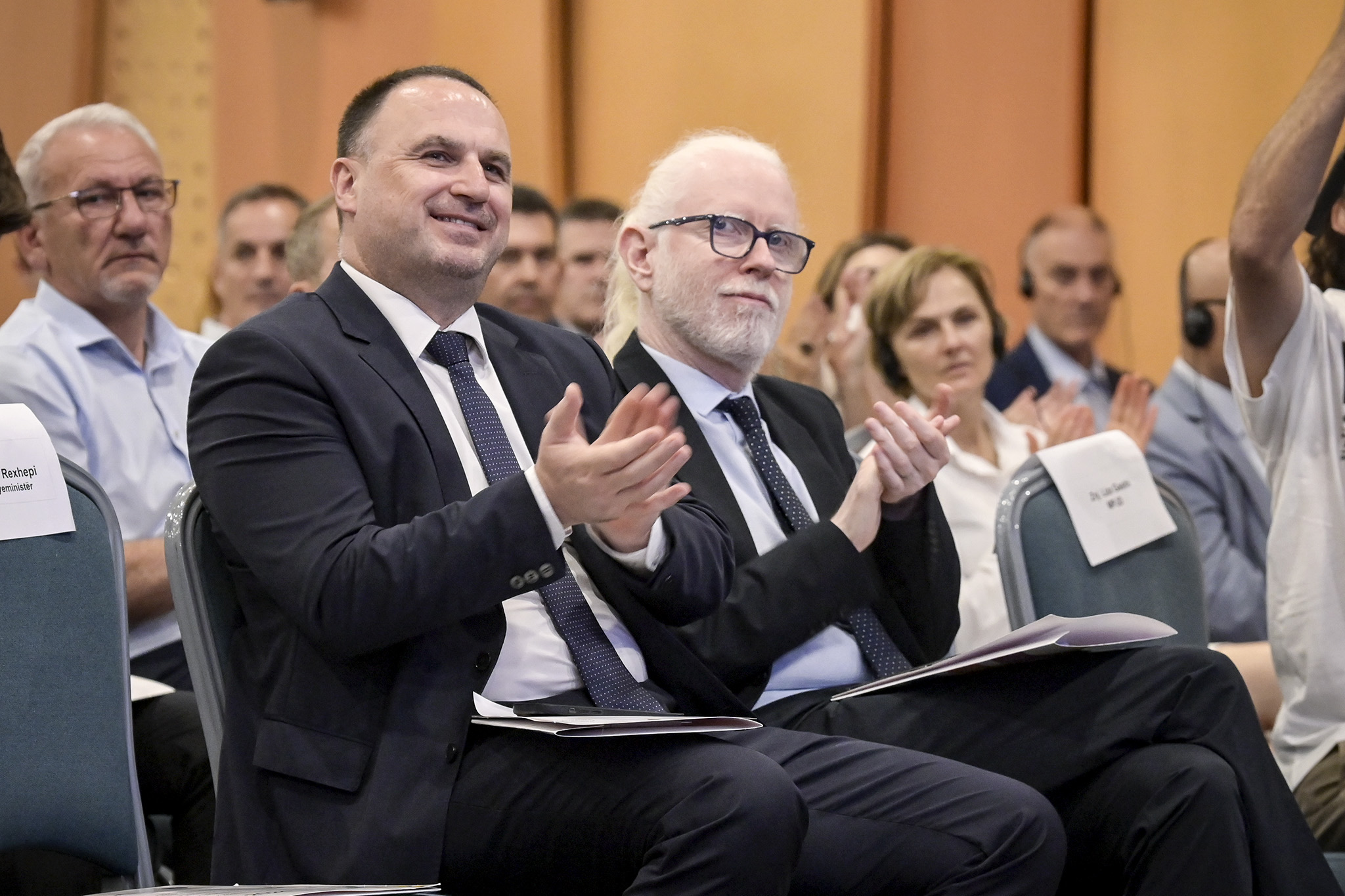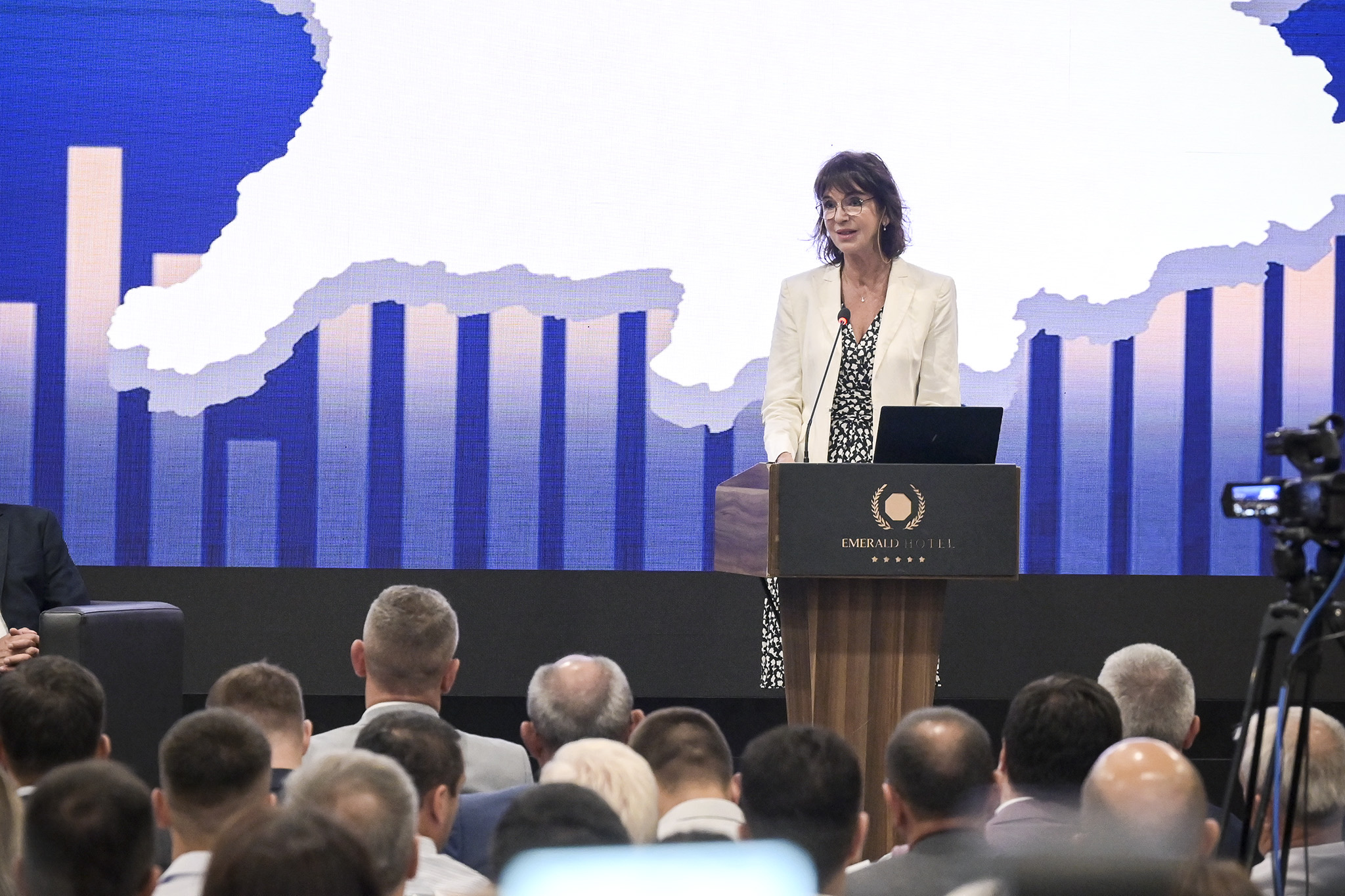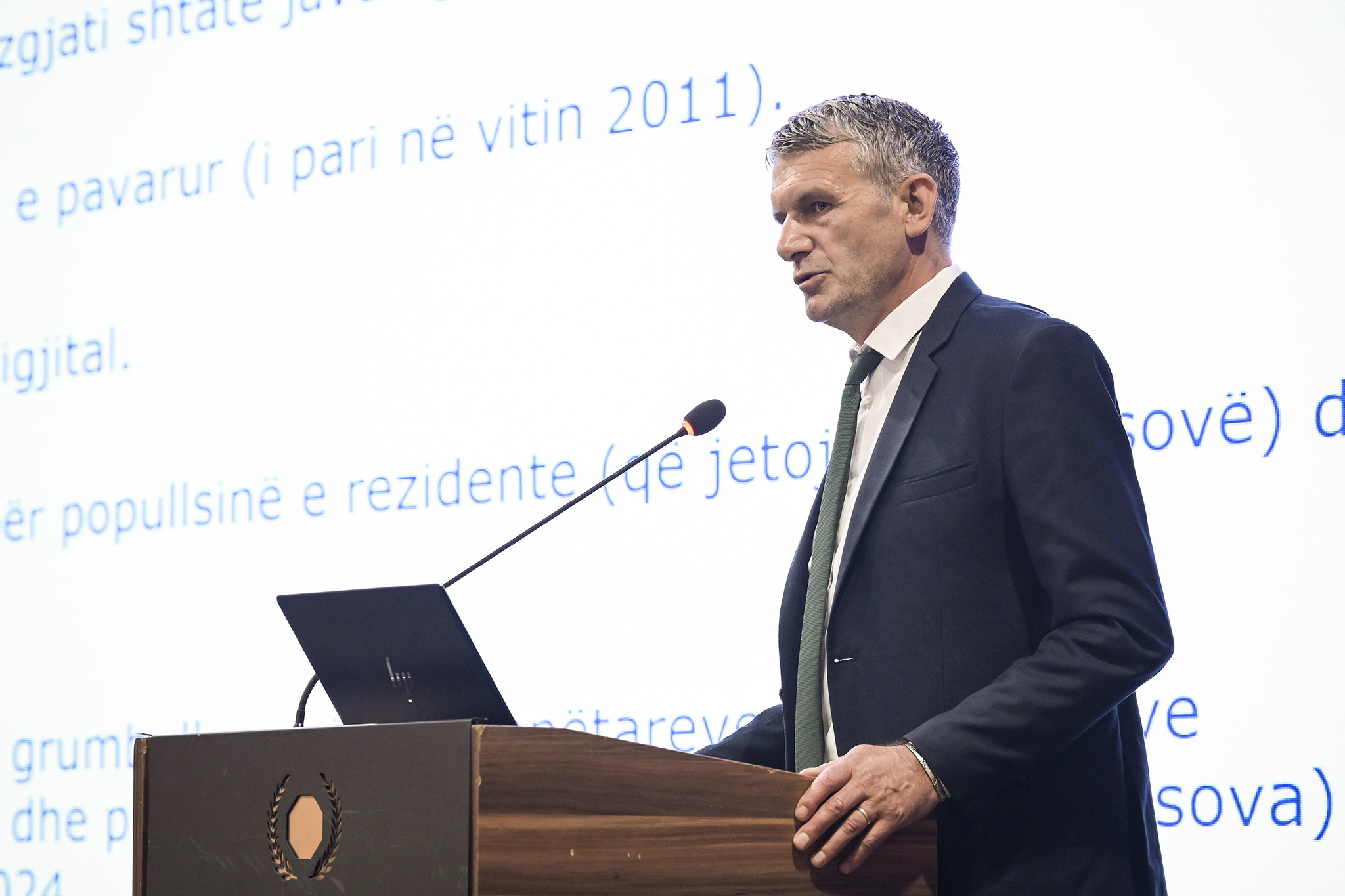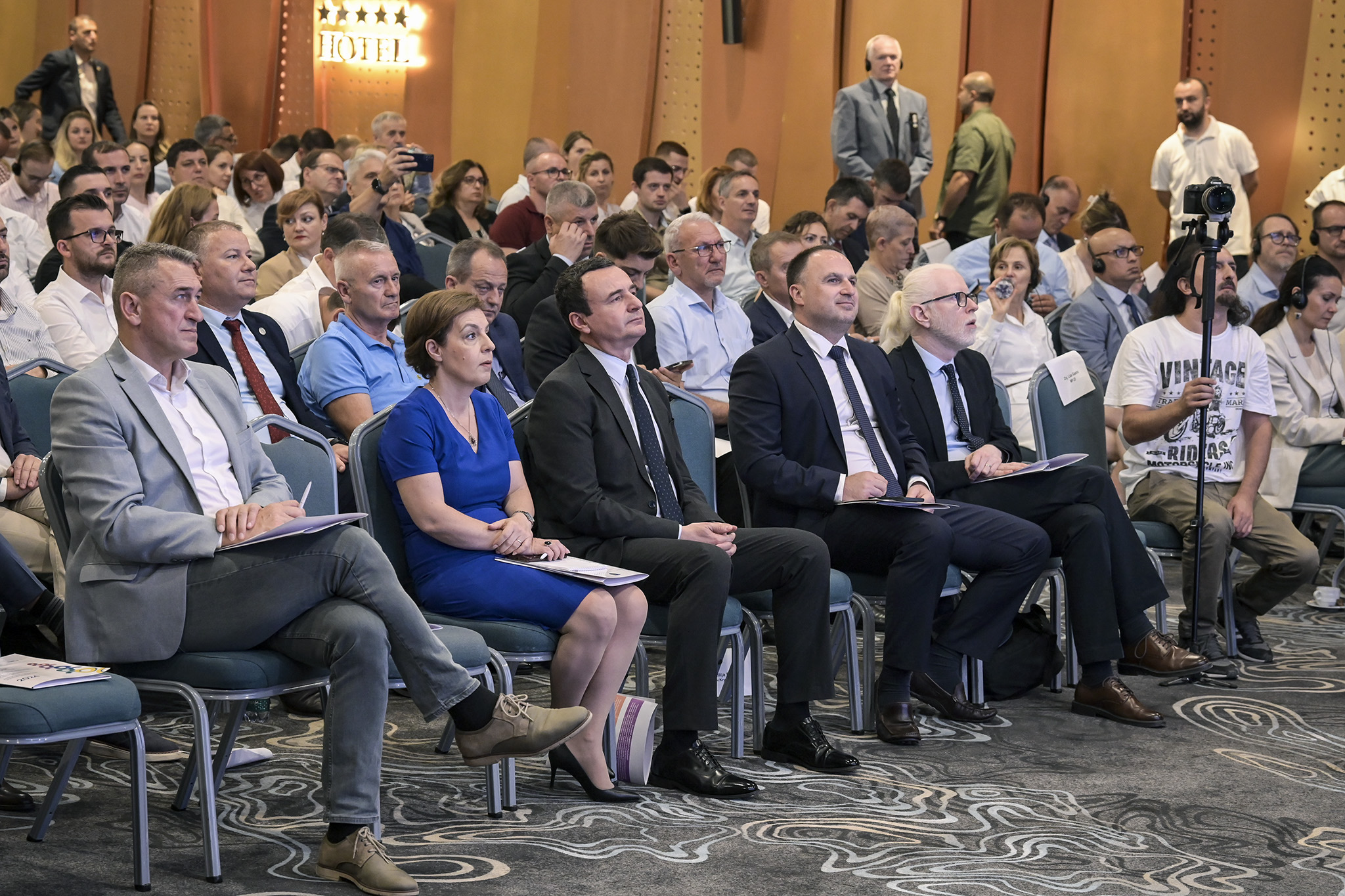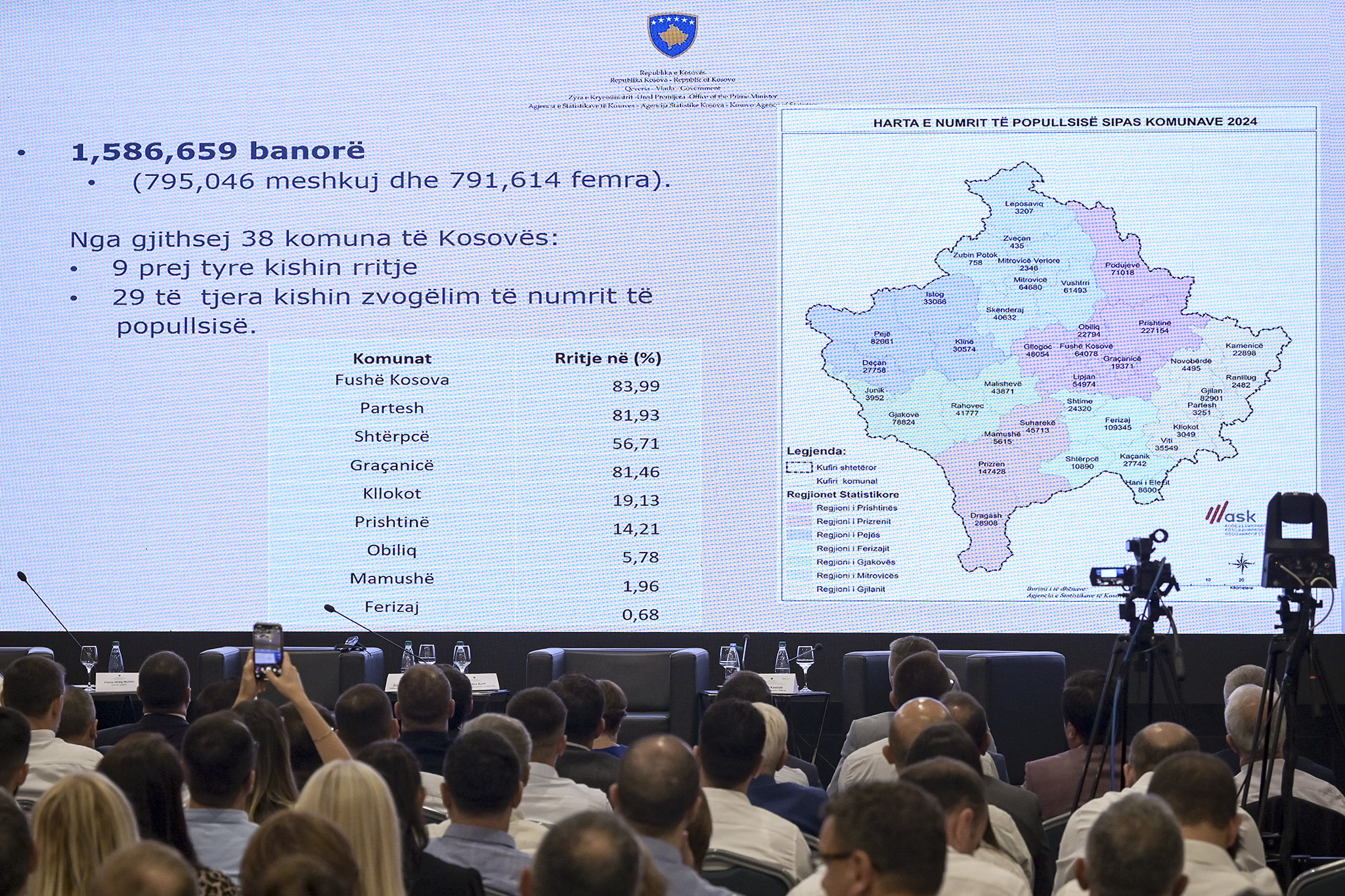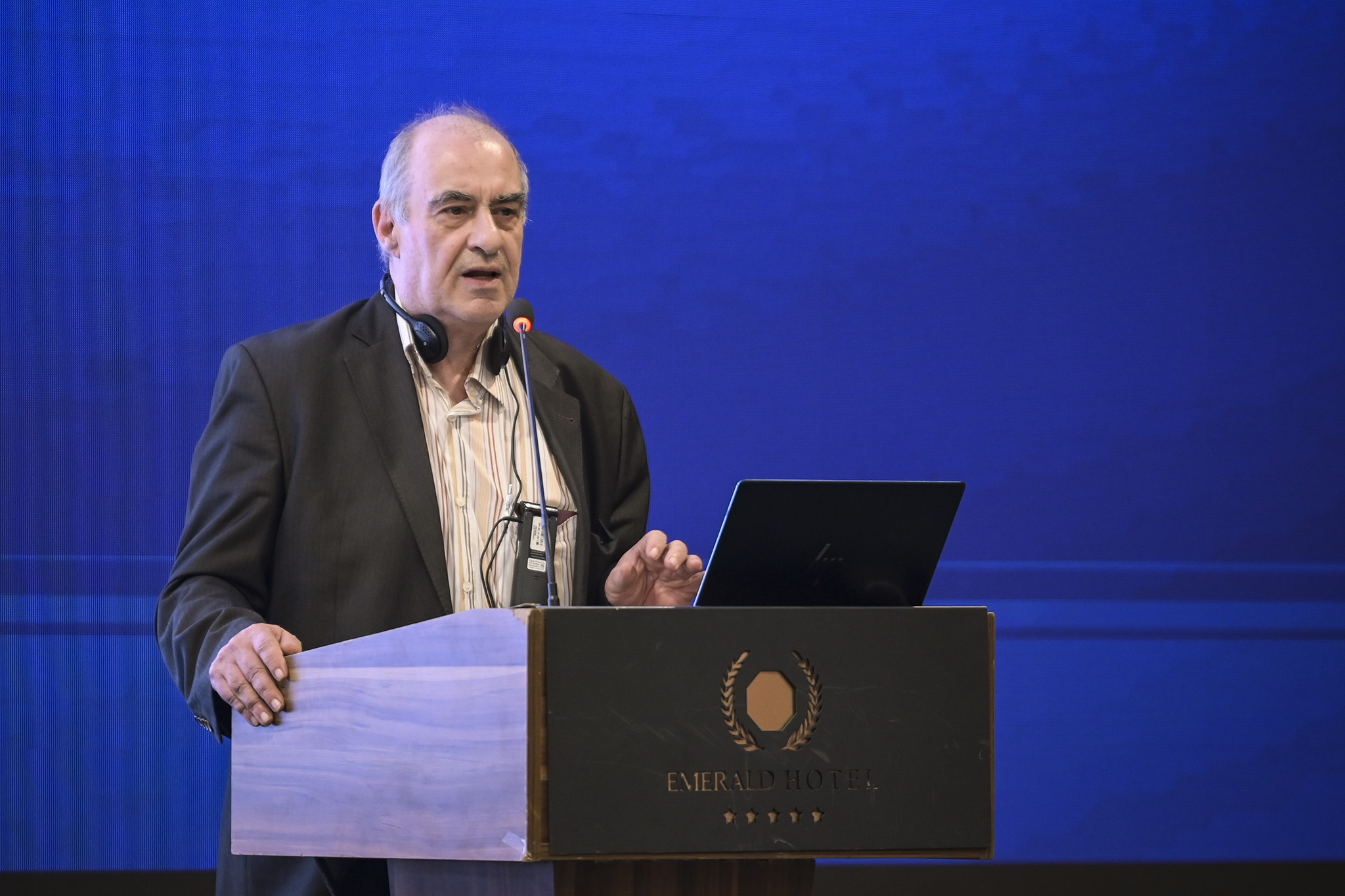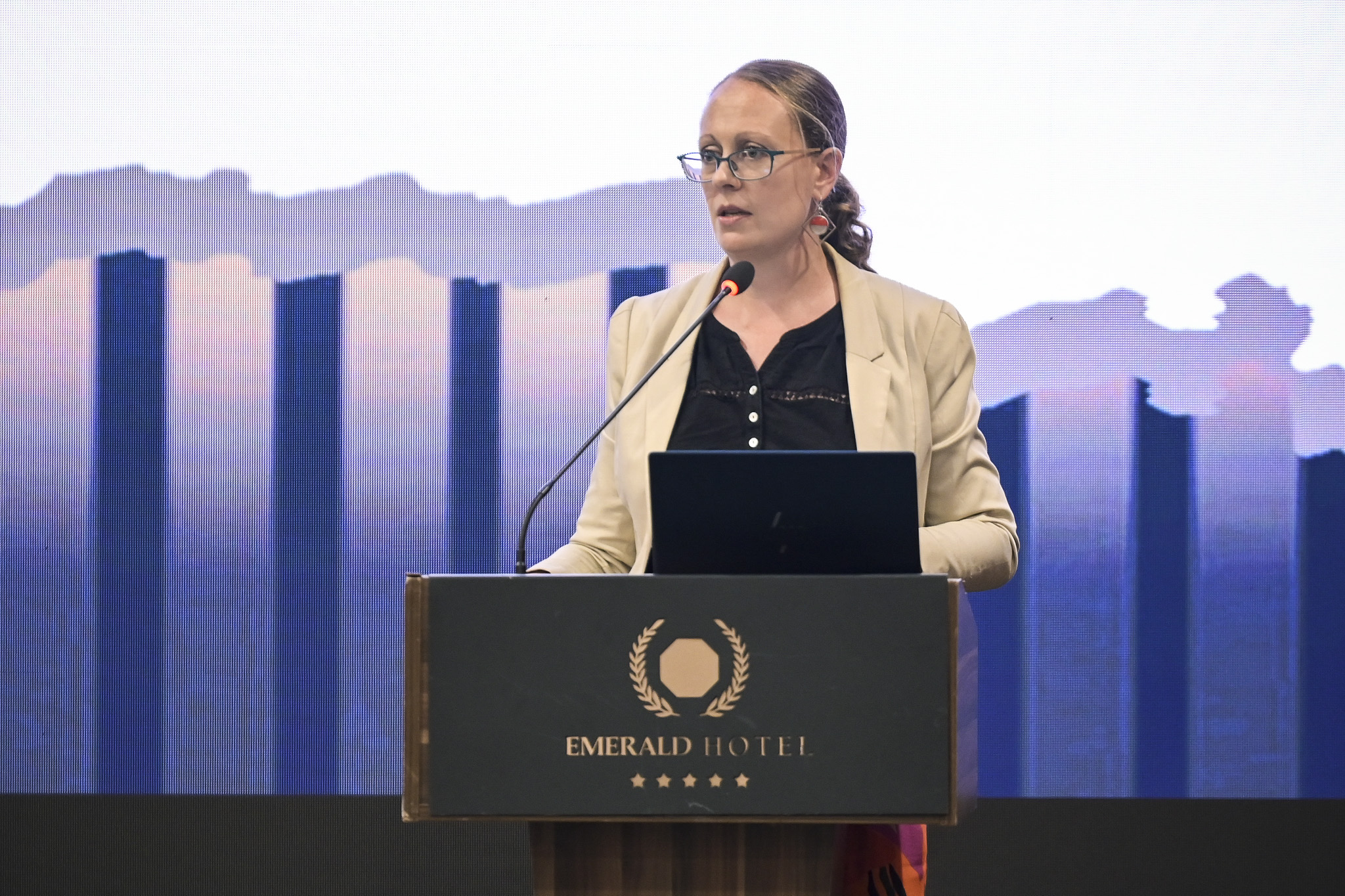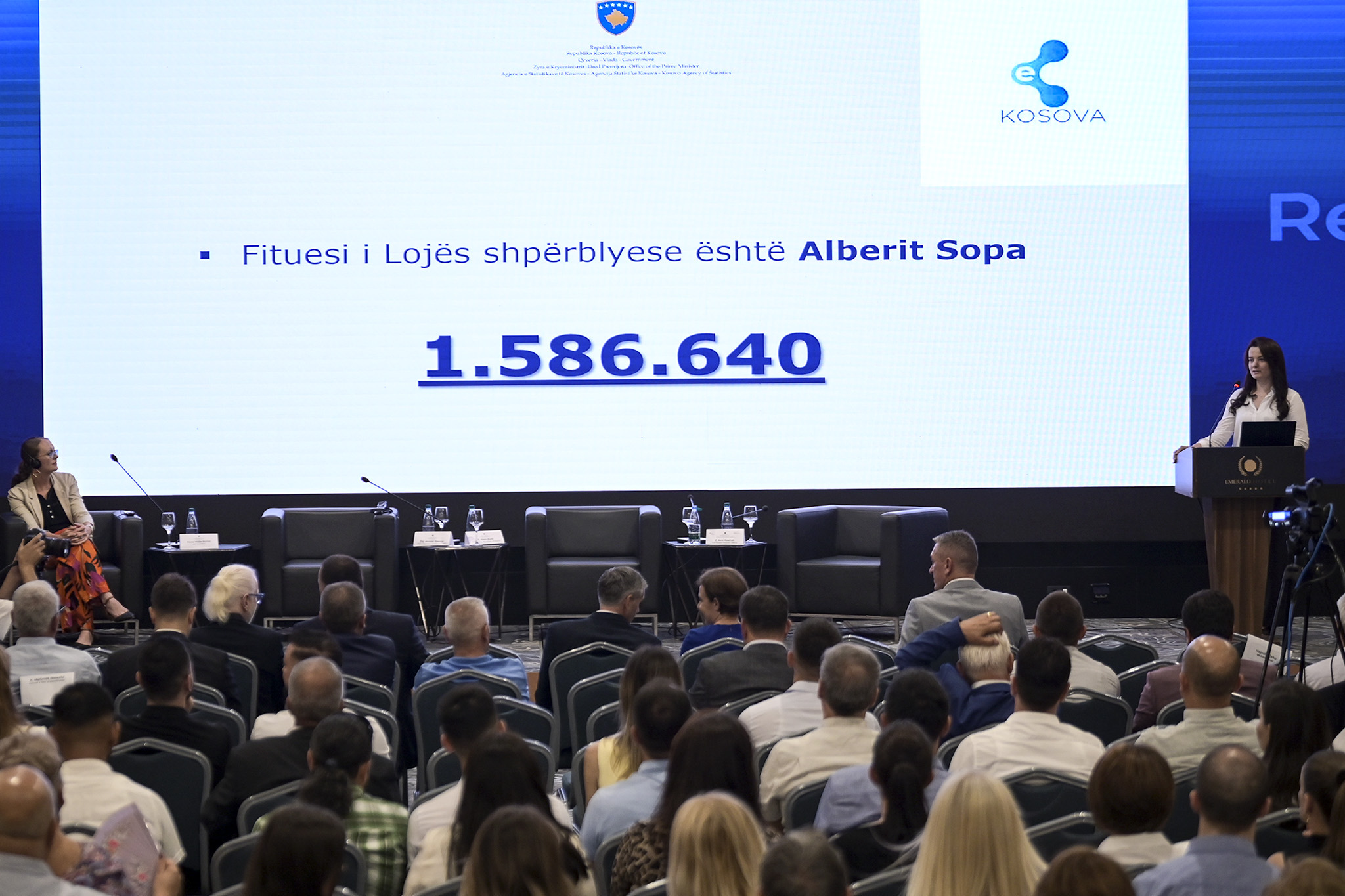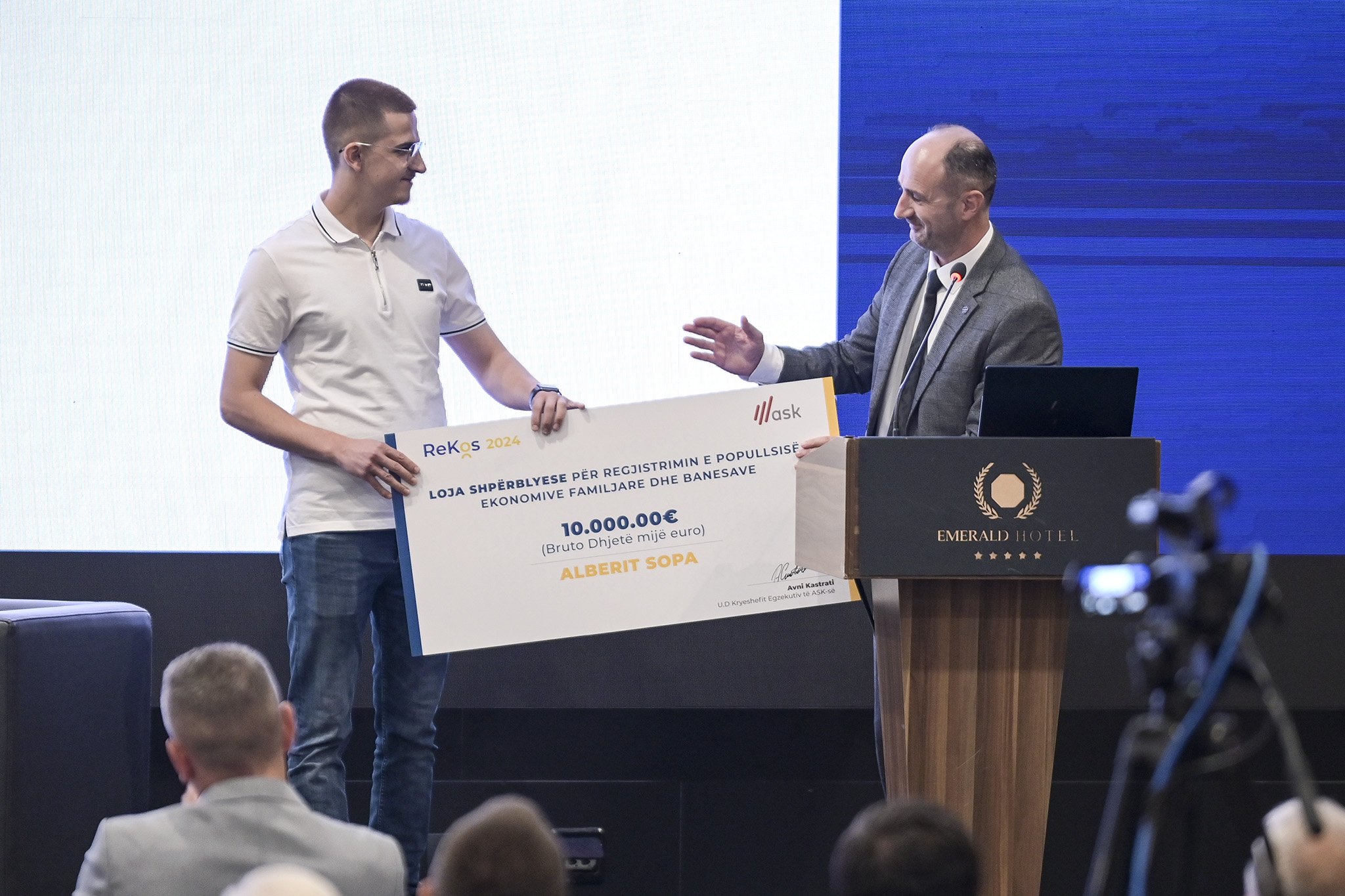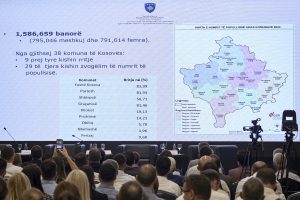Prishtina, 12 July, 2024
The Statistics Agency of Kosovo has today presented the preliminary results of the Census of Population, Family Economy and Housing in Kosovo.
According to these results, the Republic of Kosovo has 1,586,659 inhabitants, of which 795,046 are men (50.1%) and 791,614 are women (49.9%). The average age turns out to be 34.8 years. Meanwhile, the registration of the emigrant is continuing.
In the event organized by the Statistics Agency of Kosovo, the Prime Minister of the Republic of Kosovo, Albin Kurti, also participated, who in his address said that the implementation of the population census was one of the most priority projects of the Government of the Republic of Kosovo. during this year, taking into account the importance of timely data as well as the round of global records (2015-2024).
“This census is not just a statistical exercise; it is a reflection of our commitment to understand and address the needs of our population – ensuring an equal distribution of resources as well as laying the foundations for informed decision-making that will shape the future of Kosovo”, he said.
Statistics are a public good and should be used to make evidence-based decisions. In a democracy, making political decisions based on evidence, that is, statistics is very important to ensure transparency and accountability, added the prime minister.
He thanked the citizens, partners and public institutions led by the Statistics Agency of Kosovo, for their tireless work and contribution to the realization of this very complicated and very important project for the country.
The Government of Kosovo, together with the Agency of Statistics of Kosovo, during this time coordinated the activities and almost all requests of KAS to the Government were approved on time, which enabled such a successful result. “I am proud as Prime Minister of the Republic of Kosovo, for the dedication and commitment shown by all those who participated in this process”, he added.
A strong statistical agency that provides reliable data and up-to-date statistics is a valuable asset for the country. Prime Minister Kurti once again confirmed his and the Government’s commitment to open communication, close cooperation and dedicated coordination, in order to make Kosovo a leading country in the collection, analysis and use of statistical data for the sustainable development of country.
Starting from April 5 of this year, for 50 days, about 2,600 registrars in 38 municipalities of our Republic collected essential data for the policies, strategies, projects and decisions of the state for the next decade. From a professional and technical point of view, the process of Census of Population, Family Economies and Housing was evaluated with high marks by the monitoring teams of international partner organizations, UNFPA and UNECE.
Deputy Prime Minister and Minister of Foreign Affairs and Diaspora, Donika Gërvalla-Schwarz, Minister for Communities and Returns, Mr. Nenad Rashiq, United Nations Development Coordinator, Mrs. Arnhild Spence, Mr. Eduard Jongstra, head of the UNFPA regional office for Europe and Central Asia, Ms. Fiona Willis-Nunez, statistician of social and demographic statistics of the United Nations, Mayors of Municipalities, Representatives of the institutions of the Republic of Kosovo, ambassadors, representatives of international institutions and many others.
Prime Minister Kurti’s complete speech:
Yesterday was the World Population Day (according to the UN) and it is a pleasure that today Kosovo presents the preliminary data after a very short time since the data collection process in the field ended. I thank the citizens, our partners and public institutions, led by the Statistics Agency of Kosovo, for the tireless work and contribution to the realization of this very complex and very important for the country. Without their support, this process would be impossible.
Dear Ms. Donika Gërvalla-Schwarz, Deputy Prime Minister and Minister of Foreign Affairs and Diaspora,
Honorable Mr. Nenad Rashiq, Minister for Communities and Return,
Dear Mr. Avni Kastrati, u.d. of the executive director of the Statistics Agency of Kosovo,
Dear Ms. Arnhild Spence, United Nations Development Coordinator,
Dear Mr. Eduard Jongstra, head of the UNFPA regional office for Europe and Central Asia,
Dear Ms. Fiona Willis-Nunez, United Nations Social and Demographic Statistics Statistician,
Mayors of Municipalities,
Representatives of the institutions of the Republic of Kosovo,
Excellencies ambassadors,
Representatives of international institutions,
Ladies and gentleman,
Dear citizens,
Dear attendees,
The realization of the population census was one of the most priority projects of the Government of the Republic of Kosovo during this year, taking into account the importance of timely data as well as the round of global censuses (2015-2024), in which Kosovo will also be a part of this development.
This census is not just a statistical exercise; it is a reflection of our commitment to understanding and addressing the needs of our population – ensuring both an equitable distribution of resources as well as laying the groundwork for informed decision-making that will shape Kosovo’s future.
In a way, real statistics are like the GPS for our country’s future. With accurate data we are sure that we will not lose our way and find our destination. Otherwise, without them, we will end up making zig-zag turns, thus wasting valuable resources.
The results of a census process with their characteristics including geographic, demographic, social and economic extent, size and composition of households, living conditions, level of education, etc., starting from the smallest areas or subgroups of the population, make the recording unique and unique. The extraction of numerous, complete and accurate data will enable all users and decision-makers, starting from the local and central level, but also for donor organizations and prospective investors, for the orientation of the best policies and services for citizens. Without accurate data, that is, without qualitative statistics, even decisions can be inaccurate and not qualitative. Statistics are a public good and should be used to make evidence-based decisions. In a democracy, making political decisions based on evidence (ie statistics) is very important to ensure transparency and accountability.
Statistics are like that friend who tells you that you have put on weight – you may not want to hear it, but it is important for your health! To be honest, when I saw this sentence in the speech, it didn’t seem very appropriate to me, but I decided to read it since it was added by my chief of staff, Luan Dalipi, and clearly, obviously, he did this from his personal experience.
The Government of Kosovo, together with the Agency of Statistics of Kosovo, during this time coordinated the activities and almost all requests of KAS to the Government were approved on time, which enabled such a successful result. I am proud as Prime Minister of the Republic of Kosovo, for the dedication and commitment shown by all those who participated in this process. So, this population census is also an example of the cooperation and harmony of all these people who participated together in such an important process for our country and for our future.
I personally, in a short period of time (within 6 months), visited KAS several times to see closely the necessary preparations, to encourage and offer my personal support.
International institutions, such as the European Union (EU), the United Nations Organization (UN), the International Monetary Fund (IMF), the World Bank, USAID, etc. are based on statistical data to make informed decisions as well as the government and other state institutions. These data are usually collected through population censuses, which provide a solid basis for analysis and strategic planning.
Kosovo plays an important role in cooperation activities in the Western Balkans and is an active partner in the work of international organizations. By participating in the initiatives of various international organizations, Kosovo contributes to improving the quality and comparability of statistical data. This commitment not only improves domestic policy making, but also increases the integration and credibility of our country in the international arena.
Through these collaborations, Kosovo benefits from the exchange of information and best experiences, strengthening its institutional capacities and ensuring that its data are comparable to those of other countries. This is essential for attracting investments, for designing effective policies and for sustainable economic and social development.
A strong statistical agency that provides reliable data and up-to-date statistics is a valuable asset for the country. As the Prime Minister of the Republic of Kosovo, I reaffirm my and the Government’s commitment to open communication, close cooperation and dedicated coordination, in order to make Kosovo a leading country in the collection, analysis and use of statistical data for sustainable development of the country.
Thank you for the great work you have done and for your attention today!

